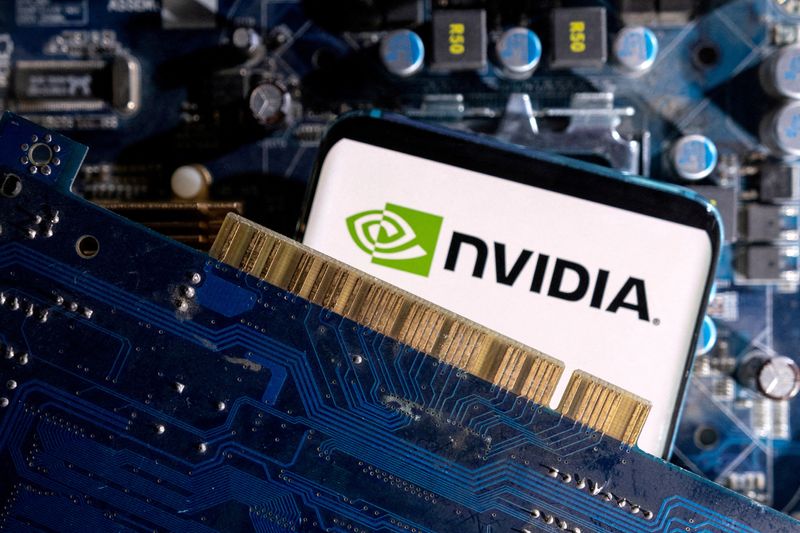Written by Max A. Charney and Stephen Nellis
SAN JOSE, Calif. (Reuters) – Artificial intelligence semiconductor giant Nvidia unveiled its flagship AI chip, the Blackwell B200, on Monday, saying it is up to 30 times faster than previous chips.
Kicking off the company's annual developer conference, CEO Jensen Huang announced a new software tool designed to make it easier for developers to sell their artificial intelligence models to companies that use Nvidia. The set was also set up.
Nvidia's chip and software announcements at GTC 2024 will help determine whether the company can maintain its leadership position as a major seller of AI equipment. Nvidia captured about 80% share of the data center AI chip market last year.
“I want you to understand that this is not a concert,” Huang said after taking the stage, wearing his trademark black leather jacket, nodding to his company's growing profile.
The B200 takes two chips the same size as Nvidia's previous products and combines them into one chip.
The new chip has 208 billion transistors, more than double the 80 billion in the company's previous chip. All of these transistors can access the memory connected to the chip almost simultaneously, increasing productivity.
Tom Plumb, CEO and portfolio manager of Plumb Funds, which has Nvidia as one of its largest holdings, said the Blackwell chip is not surprising.
“But this confirms that this company is still on the cutting edge and is the leader in all graphics processing. That doesn't mean this market isn't big enough for AMD and other companies to enter. No. But this shows that their lead is still “pretty insurmountable,'' Plumb said.
Nvidia could solidify its AI advantage, said Jacob Bourne, an analyst at Insider Intelligence. “But rivals such as AMD, Intel, startups and even Big Tech's own chip focus threaten to chip away at Nvidia's market share, especially among cost-conscious enterprise customers.”
Nvidia said its new chips are expected to be used by major customers including Amazon.com, Alphabet's Google, Meta Platforms, Microsoft, OpenAI, Oracle and Tesla.
Nvidia is also moving from selling single chips to selling complete systems. Its latest version is equipped with 72 AI chips, 36 central processors, contains 600,000 parts and weighs his 3,000 lb (1,361 kg).
Nvidia is widely known as a chip designer, but the company also builds a ton of software products.
New software tools called microservices are making systems more efficient across a variety of applications, making it easier for companies to incorporate AI models into their operations, in the same way that a good computer operating system helps apps run well. I'll make it.
Nvidia's stock price has increased 240% in the past 12 months, making Nvidia the third most valuable company on the US stock market behind Microsoft and Apple.
Nvidia shares fell 1% in extended trading Monday, while supermicrocomputers, which make AI-optimized servers using Nvidia chips, fell 4%. Advanced Micro Devices' stock price fell nearly 3% during Hwang's keynote speech.
After 12 months of impressive stock gains, Nvidia's stock is at risk of crashing if the Santa Clara, Calif., company fails to expand its AI business as much as investors hope.
Nvidia's market share is expected to decline several percentage points in 2024 as new products from rivals such as Intel and Advanced Micro Devices come to market.
Huang spoke at the Silicon Valley Hockey Arena, which holds the largest crowd at the annual conference.
Huang also announced partnerships with design software companies Ansys, Cadence, and Synopsys. Shares of the three companies rose about 3% in extended trading following Hwang's comments.
(Reporting by Max A. Cherney and Stephen Nellis in San Jose, California; Additional reporting by Arsheeya Singh Bajwa in Bengaluru and Noel Randewich in Oakland, California; Editing by Peter Henderson, Bill Berkrot and Matthew Lewis)


